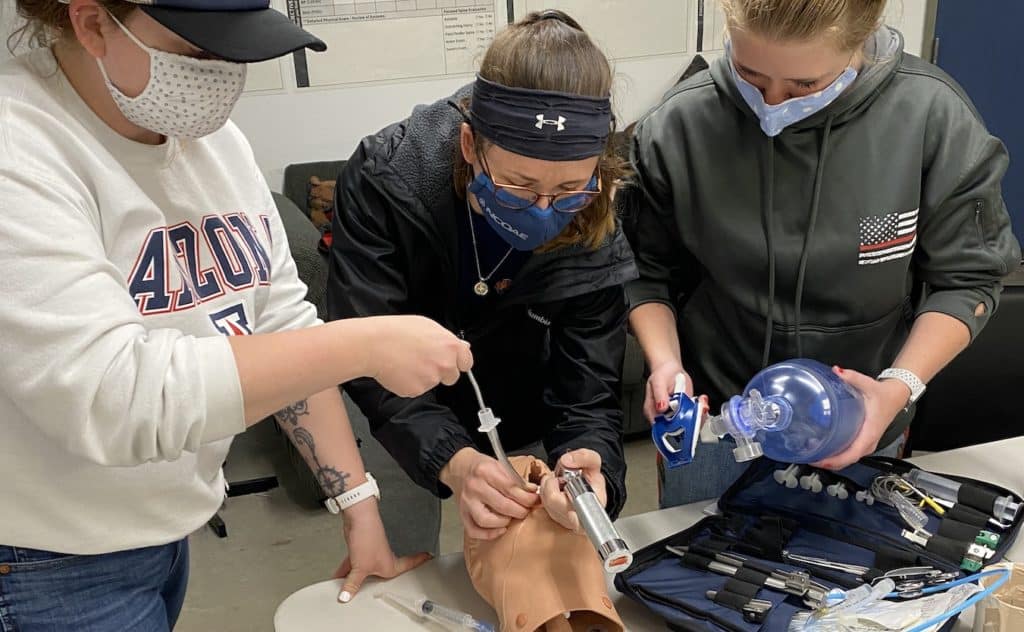Intensive Self-paced EMT Certification Course for Oregon and North Carolina
EMT TrainingFinding a local EMT certification course provider and fitting the training into a busy schedule may seem like an insurmountable obstacle, especially if you’re still in school, working a full-time job — or both.
The solution? The National Center for Outdoor and Adventure Education’s (NCOAE’s) Intensive Self-paced EMT Certification Course, which gives you the freedom to learn at your own pace, from anywhere.
This flexible EMT certification in Oregon and North Carolina is designed for people who are passionate about emergency response, the Intensive Self-paced EMT Certification Course offers a comprehensive, hands-on approach to learning that combines in-depth coursework with practical, real-world applications.
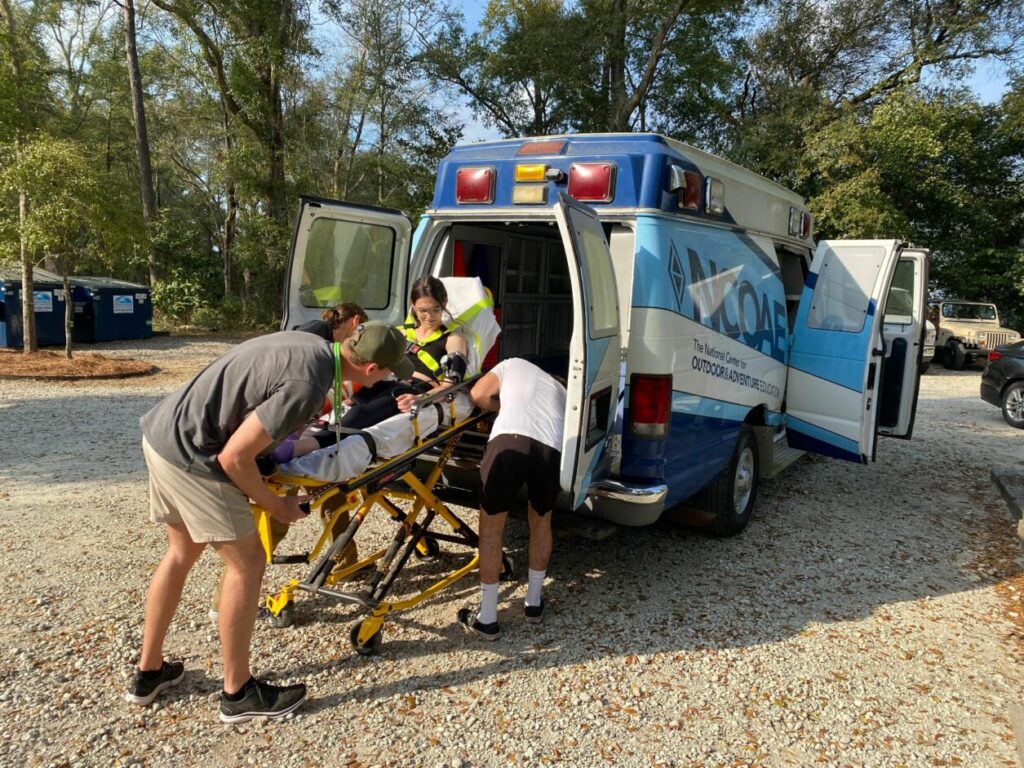
With expert instructors, engaging online content, and field training opportunities, this flexible EMT course is tailored to meet the needs of busy learners. Ready to dive in? In this post, we share most of what you need to know about this unique course offering from NCOAE, point you to sources where you can find additional details and provide the many benefits of Self-paced EMT Training.
About the Intensive Self-Paced EMT Certification Course
Our team designed this 240-hour self-paced EMT training course to be comprehensive, practical, and efficient. The curriculum is divided into two phases: (more…)
Testing for EMT Certification: Past, Present and Future
EMT TrainingEmergency medical technicians (EMTs) play a vital role in the modern healthcare system, providing immediate, life-saving assistance to people experiencing acute medical conditions or traumatic injuries. By rapidly assessing and treating patients in critical situations, EMTs improve survival rates, minimize complications, and optimize treatment outcomes.
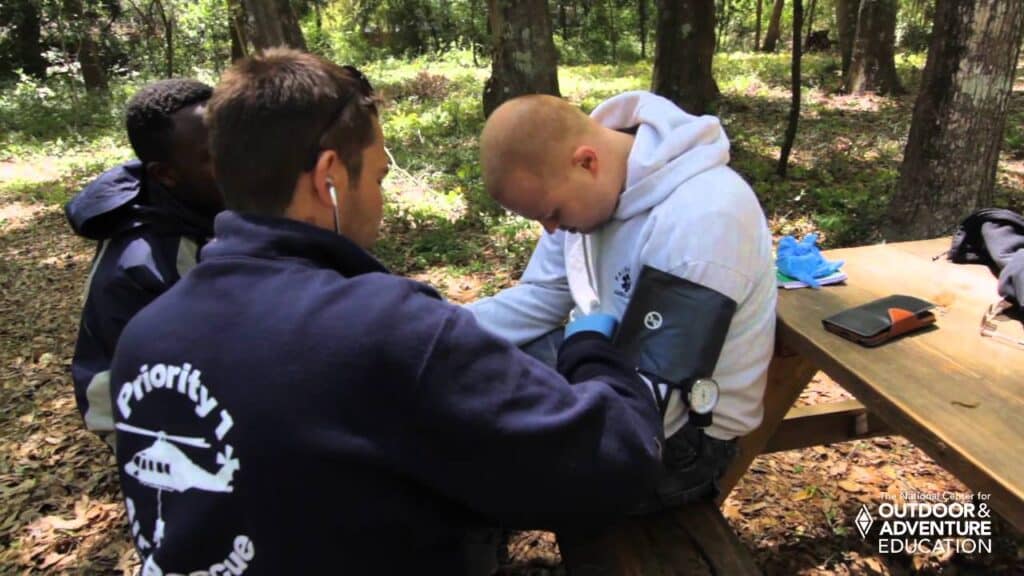
Training, testing, and certification ensure all EMTs have the skills needed to respond to life-threatening emergencies. In this post, we explore the history of EMT training and certification, bring you up to speed on its current state, and look ahead to its future. Why this matters to us here at The National Center for Outdoor & Adventure Education (NCOAE) is because we offer such training for EMTs throughout the U.S.
The Evolution of EMT Testing: Past to Present
EMT testing and certification have evolved over the course of nearly six decades. Formalized training didn’t begin until the late 1960s. It was initiated by the publication of a white paper in 1966 titled, “Accidental Death and Disability: The Neglected Disease of Modern Society.” The paper was in response to increasing trauma and death resulting from traffic accidents in the United States.
Up to that time, ambulance services generally consisted of team members with little to no formal training, with such services often relying on volunteers. And any formalized training and testing that was being done was administered locally by (more…)
Most EMS Terminology Comes Down to Initials, Abbreviations and Acronyms
EMT TrainingA few years ago, we ran a three-part series on slogans, slang, and terminology as it applies to a trio of human-powered outdoor recreational activities. If you recall, we started out with some “gnarly” surfing terms, then we “tied in” to a conversation about climbing, finally pulling a “wet exit” on the language of paddling.
You can review these three articles using the links below:
- From Sept. 20, 2020: Surfing Terminology and Slang: You Can’t Play BINGO Without the Lingo
- From Oct. 10, 2020: On Belay — Climbing Terminology and Slang
- From Oct. 30, 2020: Paddling Terminology and Slang: Nobody Says ‘Up a River Without an Oar’
There was quite a bit of word whimsy in those articles, and we made sure to remind readers that successfully lassoing the linguistics of a particular activity was no guarantee you were mastering that particular sport professionally.
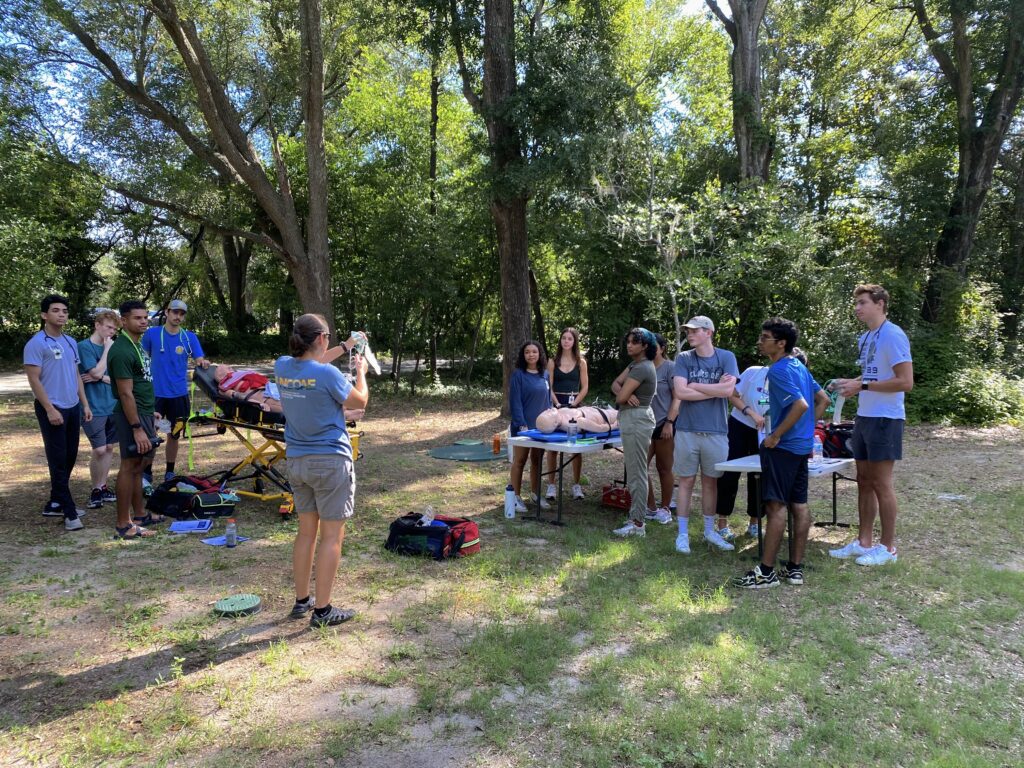
Today we’re taking a more serious look at language, this time highlighting the terminology used by members of the Emergency Medical Service (EMS) community. That’s because one of our areas of focus here at The National Center for Outdoor & Adventure Education (NCOAE) is emergency medicine training and education. And whether you’re an EMS, medical professional, or wilderness first responder (WFR), these terms are most often employed when these professionals find themselves managing a medical emergency.
First off, you might notice that most of these terms come in the form of acronyms, abbreviations, and initials, and the reason for that is to enable first responders to quickly communicate and react with each other and the patient in the field.
The source for these acronyms comes from the NCOAE Wilderness Medicine Field Guide (ISBN 978-0-578-87449-4).
Here, we present them in alphabetical order: (more…)
NCOAE’s EMT Training Opens the Doors to Jobs Across the U.S.
EMT TrainingApplicants to our nationally renowned EMT training courses often ask us if they can take
their new EMT credentials to the state where they live, and the answer is mostly yes.
The National Center for Outdoor and Adventure Education’s (NCOAE) campus is
located in North Carolina, where we offer 21-day “Intensive” EMT-Basic and 23-day
“Intensive” Advanced EMT training courses among others. Successful completion of
these courses authorize our graduates to take the National Registry of Emergency
Medical Technicians (NREMT) exam.
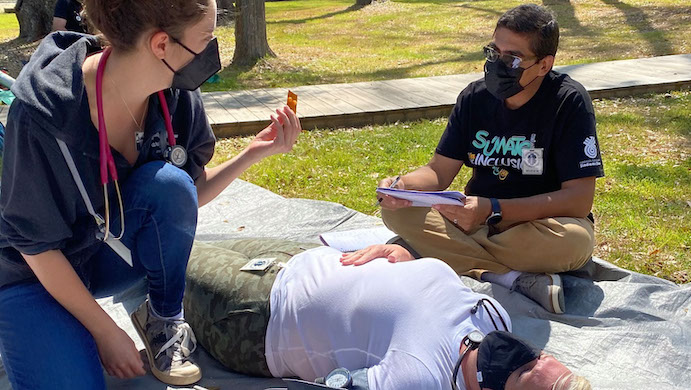
National Registry Certification examinations evaluate the competence of EMS
practitioners at a variety of levels, including Emergency Medical Responder (EMR),
Emergency Medical Technician (EMT), Advanced Emergency Medical Technician
(AEMT), and Paramedic.
NREMT credentials are either required for an initial license or accepted for legal
recognition or reciprocity in all 50 states and Puerto Rico. That makes it easier to
maintain
How to Become an EMT
EMT TrainingYou’re thinking about becoming an EMT. Awesome! If you follow through, you will be joining the ranks of today’s modern-day heroes, the frontline of the frontline workers — bona fide life savers!
Emergency Medical Technicians (EMTs) are trained professionals who provide care in critical and emergency situations. Such emergencies can range from simple, routine calls to intense and complex scenarios.
You may show up for a call only to discover that there is no victim, or the person is okay and refuses help, or a patient simply needs transportation from one medical facility to another. On the other hand, you could be called in to attend to the victim of a car accident or a shooting or a heart attack, drowning, mountaineering accident, or drug overdose. You may even have to deliver a baby! You can never predict what will happen over the course of any given shift.
As an EMT, your job responsibilities generally boil down to keeping patients alive using non-invasive medical procedures and transporting them safely to a hospital or clinic where they can receive a higher level of professional medical care. More specifically, you have three fundamental job responsibilities:
- Assessment and stabilization of the patient’s condition
- Basic life support
- Transportation
In this post, we bring you up to speed on the different levels in emergency medicine and credentialing while explaining the basic education and skills required to become an EMT.
(more…)TALK TO US
Have any further questions about our courses, what you’ll learn, or what else to expect? Contact us, we’re here to help!
